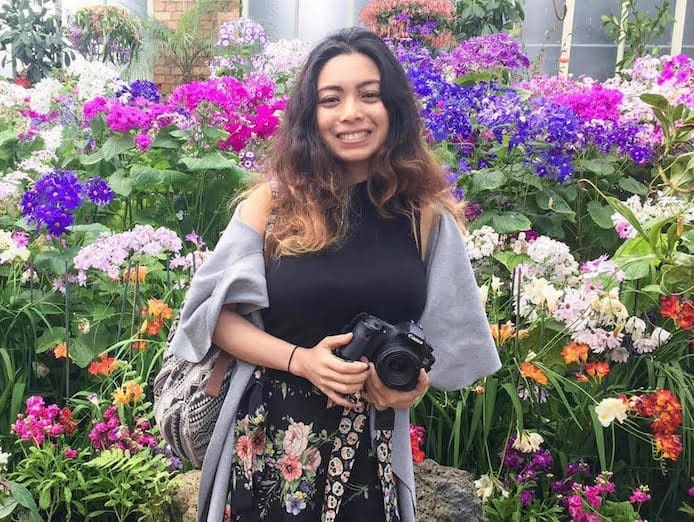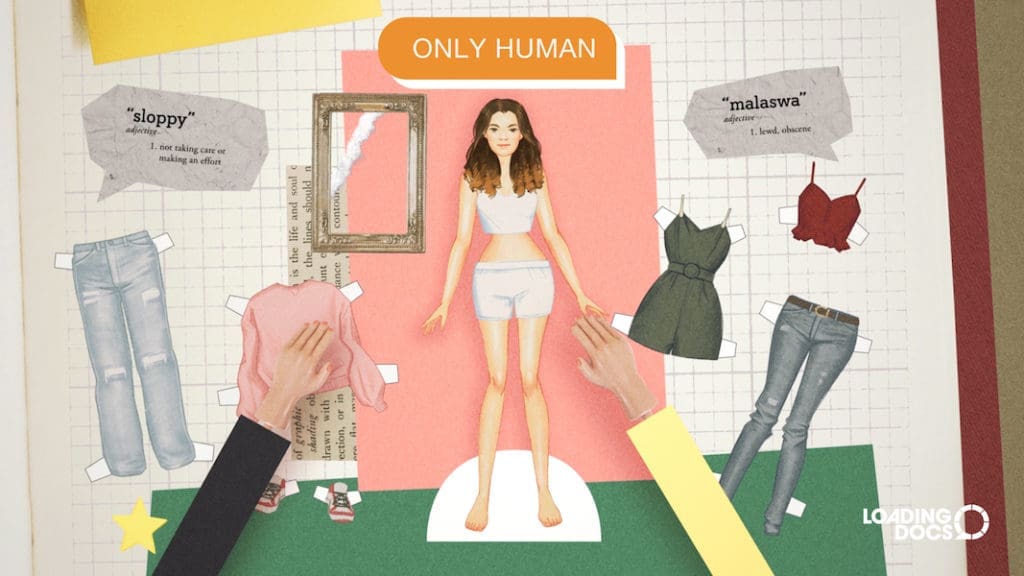Mia Maramara knew that her relationship with her father had grown more distant but as his politics became more and more divisive, she found it harder and harder to bridge that gap. In her new documentary, Only Human, screening now as part of the Loading Docs 2021 collection, she covered this changing relationship. She talks to Capsule about the decision to make this documentary, how her relationship with her father has changed and what happens when you choose yourself, over a parent.
The power of the internet and social media to radicalise people is a well-known issue – there are documentaries and think pieces and interviews dedicated to protecting young people or vulnerable people from the insidious reach of the web. But what happens when it’s your parents who are the ones slowly turning into people you don’t recognise due to their increasingly problematic views? It’s becoming more and more of an issue and it’s a topic that was very close to home for filmmaker Mia Maramara, who moved to Aotearoa from the Philippines, and watched her relationship with her father Gus grow more and more fragmented.
In 2018, an argument over an action made by the Philippine president – where he forced a kiss onto a very embarrassed and unwilling woman, while on a public stage – was the catalyst for an argument between Mia and Gus. Mia thought the action was appalling, and saw it as a woman being forced into a sexual act by a man in power. Gus thought it was an ‘innocent flirt’.

The conversation escalated – for Mia, it was yet another example of her father’s attitudes that she felt were out-dated and misogynistic towards women. After their online communication, she no longer wanted to speak to him. Examining this – and reaching out to her father after a couple of years of silence – formed the basis for Mia’s Loading Docs documentary, ‘Only Human.’
In the documentary, Mia says she and her father have kind of “an exit interview” about the emotional distance between them. Due to the literal distance between them, it would need to be a Zoom-type interview, rather than an in-person one. So she mixed in some animation – a form she’d always wanted to work in – to help illustrate both the loss and the peace that can come from reducing contact with a parent.
“It wasn’t just that one moment where I went ‘no more,’ It was that over many, many years, things had weighed on me.”
As her father become more and more right-wing and polarising with his politics – and more and more extreme in what he was posting online – she had to decide how she was going to handle this at her end.
Mia describes waking up to her Dad’s attitudes as a “frog in the boiling water” kind of situation. “Over the years it had been building; it wasn’t just that one moment where I went ‘no more,’ It was that over many, many years, things had weighed on me. By the time we had that fight, I was ready to break up with him.”
“I think people who have been in relationships understand what it’s like when something has gone sour. Over time, you can’t – or you don’t – put it into words and then you have a fight over the refrigerator door being left open and it becomes a metaphor for a much wider thing. In the film, I’m accusing him of having misogynistic views in that article but I realised that actually, my whole life had been filled with his misogynistic views. So that was really the straw that broke the camel’s back.”
It’s interesting to have the term ‘break up’ used to describe a parent relationship but it goes to show how much of our language around relationships is designed for romantic, rather than familial ties. Having to ‘break up’ with a parent can actually be far more difficult, because you’re going against a lifetime of social conditioning, plus you’re ending a relationship with someone you were literally born to love.
“At some point you have to choose yourself over the relationship,” Mia says. “And what I found out from doing this is that the percentage of people who don’t have issues with their parents is much, much, much smaller than I thought. And sometimes it can be very small things, but sometimes [those differences] can be very divisive.”
“What I found out from doing this is that the percentage of people who don’t have issues with their parents is much, much, much smaller than I thought.”
The heart of the documentary is the conversation between Mia and Gus, where they talk about their divided relationship and how hard it was for both of them after Mia’s mother died. It’s a vulnerable and heartfelt conversation – on both sides. As Mia says in the documentary, the self-awareness her father had about how his political views were hurting her made it hard for her to keep seeing the situation in black and white.
“My family is all about radical honesty – and in a way, that’s a big leg up in the communication department, because it’s very direct and we’re very open about how we feel about things. But I think having responsibility AND radical honesty is important in the age of social media. Our parents sometimes say ‘I’m just posting whatever, I’m just posting what I think,’ and it’s like, ‘Yes, but is it responsible? Are you being responsible with this magical thing that we’ve been gifted in the technology age?’ We all have to learn the rules around it.”
When you look at the points of controversy over the past 18 months alone that have been fuelled division on the internet, the list is pretty varied. The Black Lives Matters protests highlighted how damaging and racist the discourse could be; the onset of Covid – the multiple conspiracies around where did it come from/whether it exists (!)/who is responsible and now the argumentative nature of the vaccine discussion. “Social media exacerbates that divide between people by presenting an idea of ‘there’s always two clear sides’, and it’s like, it’s not. There are so many grey zones,” Mia says.
The documentary leans into that grey zone when it comes to the future of Mia’s relationship with her father, there are no easy paths forward and she’s okay with that. In a Covid-19 twist, her father contracted the disease very recently and the entire family rallied around him – Mia included – as he battled it. He’s now fine, but Mia says her lockdown has been very ‘nocturnal’ in nature so she can stay in contact with her family back home.
The point of the documentary wasn’t to vilify her father, or reunite with him, it was to show the many other families going through this that they weren’t alone. “The more open you are, the more you realise that other people are going through it too.. I wanted to reach people who were also going through and let them know they weren’t alone, and that there is hope in this situation too.”


Only Human is part of the Loading Docs 2021 collection. The film is available to watch via www.loadingdocs.net

